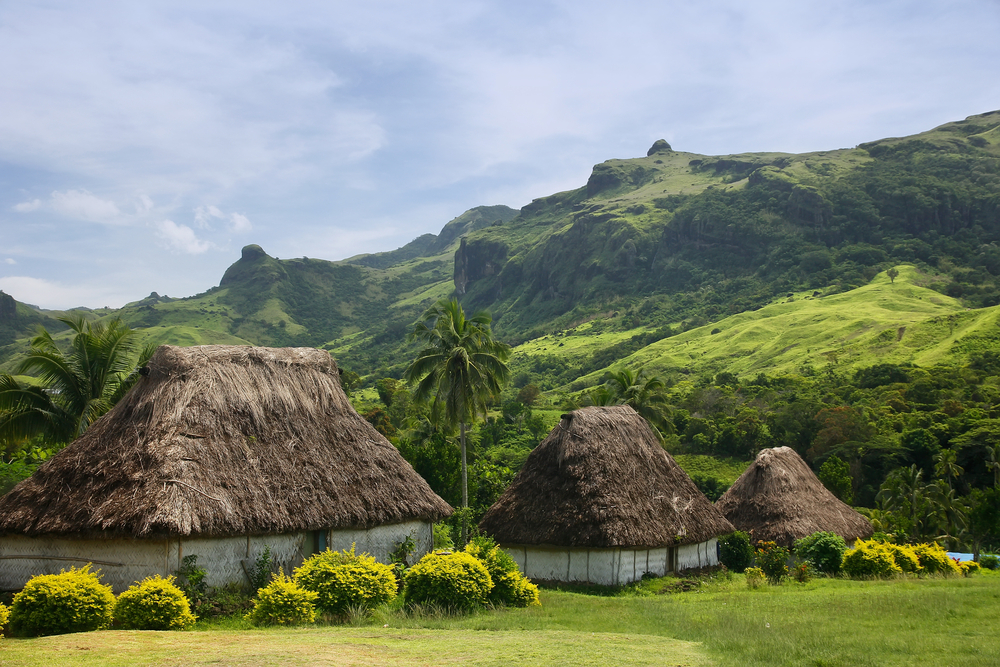Honeymoon Room with a view in the Cook Islands
Top 10 best islands in Oceania to dream
Physical distancing,
confinement
and
curfews
are measures that are alien to the daily lives of the inhabitants of the
Cook Islands,
Kiribati, Micronesia, Niue,
Palau
, Nauru, Tonga,
Samoa
and Tuvalu, island countries scattered in the Pacific that have not So far
no case of covid-19 has been registered,
according to data from the World Health Organization (WHO).
These small countries, made up mostly of archipelagos with dozens of tiny
islands and atolls,
have a combined population of just over
1.4 million,
with Tuvalu (with 11,192 citizens) being the least populated.
The success of geographically remote island nations is due "to
tighter
border control,
strict quarantines and few repatriation flights," explains Meru Sheel, an epidemiologist at the Australian National University.
FREE FROM COVID BUT NOT FROM MEASLES
Surrounded by the immensity of the Pacific Ocean and thousands of kilometers away from their closest neighbors, these paradisiacal islands acted with speed and determination to halt the arrival of the virus in its tracks.
The closure of the borders since last March was key to avoid repeating a situation similar to that which occurred in 2019 when
measles
spread across the Pacific to places like Tonga and Fiji.
Ecohotel on the island of Espiritu, in Vanuatu.
But with the passing of time the chances of being free of covid-19 diminish, since in October the Marshall Islands and the Solomon Islands detected their
first imported infections
and a month later Vanuatu did.
"A virus that circulates in the region is always a risk", warns Sheel, noting that the area "has
limited resources
" in terms of infrastructure and health personnel, as well as limitations to do tests to detect the virus and trace contacts.
TOURISM, EVAPORATED
For these islands, the tranquility of being free of covid-19 has, however, come at a high cost.
This is the case of the tourist
Fiji
, which has fifty cases, has the most developed infrastructure in the region and has managed to contain the pandemic.
But in 2020 Fijian GDP is forecast to fall by 20%, according to World Bank calculations, which predicts that the Pacific economies would not stabilize until 2022.
In addition, the pandemic has forced many families "to have to make difficult decisions such as
stopping eating
or withdrawing their children from schools, something that will have harmful consequences in the coming years," warns Michel Kerf, representative of the World Bank in the region.
Traditional houses in the village of Navala, in the archipelago of Fiji.
The
evaporation of tourism
is also compounded by the sharp reduction in international trade, the fall in the prices of its raw materials due to lower demand and remittances from its diaspora, including seasonal workers.
Palau
, like the
Marshall Islands,
began to inoculate the Moderna vaccine and the small island nation of nearly 18,000 is expected to be one of the
first in the world
to immunize its entire population against COVID-19.
"The economy has been heavily impacted by covid-19, the only solution is to get vaccinated," said Tommy Remengesau, the outgoing president of Palau, where tourism accounts for more than 40% of its GDP.
According to the criteria of The Trust Project
Know more
tourism
TipsDecalogue of the good hiker to avoid risks in the mountains
DiscoverFive destinations that defy the pandemic and open their borders to tourists
Tourism in the Canary Islands collapses in high season, while Catalonia and Madrid disappear as destinations
See links of interest
Coronavirus
Snow
Khimki Moscow - Barça
Fenerbahce Istanbul - TD Systems Baskonia
Olimpia Milan - Valencia Basket
Atlético - Sevilla, live

